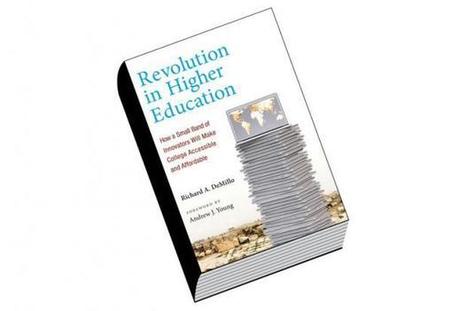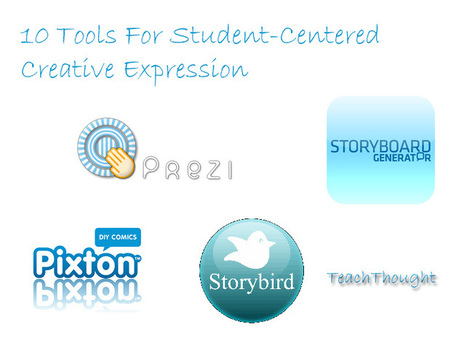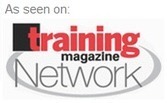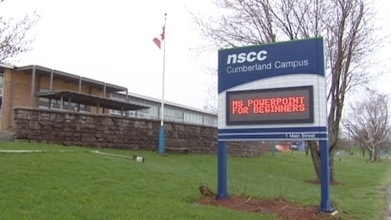 Your new post is loading...
 Your new post is loading...
"We need a cultural shift in how we provide comments on student work, say Naomi Winstone and Robert Nash"
Summary from Academica Top Ten - Friday, October 7, 2016:
"Students will not appreciate feedback until they learn how to use it, says THE contributor
“What students do with expert advice is at least as important as the advice itself,” write Naomi Winstone and Robert Nash for Times Higher Education. The authors allude to UK data showing that students are less satisfied with the feedback they receive from instructors than they are with any other aspect of PSE. Yet the authors argue that no amount of feedback would ever be enough to solve this issue, because the only way to address it is to train students on how to properly incorporate and learn from feedback, which requires resilience and flexibility. “To really achieve this goal properly, we need a cultural shift in higher education,” the authors conclude. “Moving away from the notion of feedback simply as something we give away to students and towards one that sees it as a two-way street, with shared responsibilities and expectations.”"
Via iPamba
Joanna Williams on a study embracing technology and introducing a provocative concept of learning Summary from Academica Top Ten - Tuesday, October 13, 2015 "Higher ed should develop “new social contract” It is time for “a new social contract to democratize education,” writes Richard DeMillo in his new book, Revolution in Higher Education: How a Small Band of Innovators Will Make College Accessible and Affordable. The author argues that the western world’s current education system is based on a hundred-year-old model that was designed for a time when few people attended college. Today, he adds, this model is financially unsustainable and it actually exacerbates social inequalities rather than fighting them. Looking forward, DeMillo finds that the advent of MOOCs could score a major victory in the democratization of education by eventually enabling anyone with a computer and internet to access a high-level education."
Via iPamba
A new study suggests teachers are likely to interpret students' misbehavior differently depending on race.
Via iPamba
"The Canadian Alliance of Student Associations (CASA) is concerned with the state of mental health amongst Canada’s post-secondary students, stemming from a new report by the Mental Health Commission of Canada (MHCC)." Summary from Academica Top Ten - Tues Jan 27, 2015 CASA responds to report of self-harm among Canadian PSE students The Canadian Alliance of Student Associations (CASA) is responding to a new report on national mental health indicators by repeating earlier calls to increase mental health data and improve funding for mental health supports and services. The new report by the Mental Health Commission of Canada (MHCC) is an early draft of a larger report due this spring, which will cover 63 indicators of the state of mental health in Canada across all ages and in different settings. The report will also examine the supports and services accessed by those with mental health issues. According to the data, in the last 12 months 6.6% of Canadian university and college students reported instances of self-harm. 80% of respondents reported that they had never engaged in self-harm, suggesting that 20% of college and university students had intentionally harmed themselves in the past. “Our organization is deeply concerned with the increase in mental health cases across Canadian campuses. Students are directly affected by mental illness, either through personal experiences or in the experiences of their peers,” said Travis Gordon, CASA Board Chair. CASA released a policy paper in 2014 that recommended federal involvement in a national student mental health policy.
Via iPamba
Experts at an international summit advise more prudence in bestowing accommodations. Summary from Academica Top Ten - 24 July 2014 Disability experts urge “prudence” when providing accommodations More than 400 disability experts met in Ottawa July 12–15 to discuss topics including accessibility innovations, employment strategies, and the challenges of helping persons with psychiatric disabilities. One theme that emerged from the conference was the need for greater prudence when offering accommodations to students at PSE institutions. Manju Banerjee, Director of the Landmark College Institute for Research and Training in Vermont, said that many students are labeled as having disabilities but would benefit more from instruction on study habits than academic accommodations. Larry McCloskey, Director of Carleton’s Paul Menton Centre for Students with Disabilities, agreed that some students who feel they are “entitled” to accommodations would benefit more from being taught better time management and learning strategies. Other speakers noted that some students who receive accommodations during university are surprised when they do not receive the same consideration in the workforce, and suggested that sustainable skill development is critical. University Affairs
Via iPamba
What Works In Education And How Do We Know?
Via iPamba
10 Tools For Student-Centered Creative Expression
Via iPamba
On the value of cultivating the capacity to seek the significant.
In this talk based on his presentation at the Learning Without Frontier
Via Sophie Y. Polyankina, iPamba
|
October 18, 2015
A few days ago we reviewed Bibblio which is a search platform that allows you to discover, collect and curate the best free learning materials on the web in any format (videos, podcasts, web links, presentations and many more). It also lets you organize all of your curated materials into one single homepage that you can annotate and personalize before sharing it with your peers and students.
One of the great features of Bibblio is that you can access and follow content other educators have curated. There are actually several collections out there created by teachers featuring a wealth of educational content. The collection we are sharing with you below is compiled by Best of Slideshare and contains some of the best slides about education. From the 70+ presentations in this collection, we selected what we think are the 8 most pertinent ones.
Via iPamba
Comments from The Chronicle of Higher Education, May 21, 2015 by Jeffrey R. Young "An education blog whose authors believe there’s too much hype around “personalized learning” technology has posted a series of video case studies about the trend, hoping to help get beyond overheated rhetoric. The result is an unusual look at five colleges trying high-tech classroom experiments and wrestling with how new teaching methods change the role of students and teachers. The videos were produced by the education-technology blog e-Literate, with the support of a $350,000 grant from the Bill & Melinda Gates Foundation. The case studies, divided into short segments covering different topics, together resemble a MOOC. That’s no accident, says Michael Feldstein, founder of the blog and a host of the videos, who hopes that some teaching-with-technology centers will use the videos in their professional-development workshops. He wants videos to provide more nuance than can be found in several recent popular books about the future of education. “It’s just hard to convey a visceral sense of what’s going on in the day-to-day educational lives of teachers and students with the written word,” he said in a post about the videos. Most projects featured in the videos are also supported by the Gates Foundation, but in an interview, Mr. Feldstein said the foundation had given him and the other host, Phil Hill, editorial independence. “We told them that if we decide that this personalized-learning software doesn’t work, that’s what we’re going to publish,” he said. “We look at what’s working and what’s not.” In addition to their blog, Mr. Feldstein and Mr. Hill run an education-consulting firm called MindWires Consulting."
Via iPamba
Summary from Academica Top Ten - Tuesday March 31, 2015 CFS report says student debt loads are slowing economic recovery A new study from the Canadian Federation of Students argues that a high level of student debt is hindering economic recovery. According to the CFS, student debt prevents young Canadians from buying homes, making investments, and participating in the economy. The report, entitled The Impact of Student Debt, emphasizes that young Canadians accounted for 50% of net job losses in Canada during the Great Recession, and that un- and underemployment among Canadian youth in 2014 was at 27.7%. Underemployment or working outside one's own field, the report states, contributes to skill degradation, as well as leaving young people behind in terms of experience and networking opportunities. The authors say that those with student debt have a lower net worth, fewer assets, and are less likely than their debt-free peers to have savings or investments. Debt also makes saving for a down payment for a house more difficult, and many of those burdened by student debt lack the income and job security needed to purchase a home. The report contends that easing the debt loads of students would allow them to more immediately contribute to the economy, yielding social and economic benefits for all Canadians. CFS News Release | Full Report
Via iPamba
Summary from Academica Top Ten 26 August 2014 SMA highlights George Brown's support for lifelong learning, responsiveness to market needs
George Brown College’s responsiveness to emerging needs in the economy, its partnerships in the community, and its support for lifelong learners are identified in the strategic mandate agreement (SMA) between the college and the province as the institution’s primary areas of differentiation. The SMA points out several areas of institutional strength, including the college’s support for applied research through the Green Building Centre and the Food Innovation and Research Studio, its work with organizations such as the Toronto Construction Association and Cisco, and its flexible learning models and experiential and work-integrated learning options. The SMA also notes George Brown’s focus on access and success for underrepresented groups including Aboriginal students, first-generation students, immigrants, and persons with mental illness and/or addictions. George Brown is also recognized as a leader in college-to-college business articulations and for its global partnerships. The SMA names 5 areas of proposed program growth: hospitality management, art and design, construction, community health, and business management. George Brown SMA
Via iPamba
"This article, “The Case for Banning Laptops in the Classroom”, written by Dan Rockmore for The New Yorker, has been getting considerable airtime on social media this week. As a classroom instructor I can certainly attest to the power of technology to distract and interfere with student learning. But I had three issues with the “case” being made."
Via iPamba
The world might be surprised to get A Note On The Future from Africa, but that is precisely what’s happening. And the topic? A new way we learn.While learning and education is one of the highest
Via iPamba, Ivon Prefontaine, PhD
There's been an increase in the number of students with university degrees enrolling at the Nova Scotia Community College, according to an internal survey of the college's first year students.
Via iPamba
© Thomas HawkAre exceptionally gifted children being failed by the education system?The authors of the largest ever study of the profoundly gifted question whether the education system is providing enough support for highly talented young people.
The US study, published in the journal Psychological Science, identified gifted children by their SAT scores, which placed them in the top 0.01% of the population, either in maths or verbal scores (Hill et al., 2013).
The 320 children were tracked from the age of 13, until they were 38, to see how they did in their chosen professions.
Notable careers
As you might expect, the exceptionally gifted children were more likely to gain Master's degrees and PhDs, compared with less gifted children.
Many also went on to have notable careers: they wrote books, composed music, started companies, conducted scientific research, became senior business leaders, and excelled in other worthy occupations.
Even at age 13 it was possible to see in which direction exceptionally children might head: "...mathematically more able individuals tended to focus on achievement in inorganic fields [e.g. computer science, engineering], whereas verbally more able individuals tended to invest their talent in organic fields [e.g. the arts, social sciences, education]; incorporating motivational dimensions, such as interests in people versus things..." (Hill et al., 2013)
Nurturing talent
However, the thing which stood out for the authors, based on previous research, is the roadblocks which gifted students often face in the education system.
Instead of flourishing, they argue, extra skills are often wasted as educators automatically move their focus to other less talented pupils.
The study's lead author, Harrison Kell, explained:
"There's this idea that gifted students don't really need any help. This study shows that's not the case. These people with very high IQs - what some have called the 'scary smart' - will do well in regular classrooms, but they still won't meet their full potential unless they're given access to accelerated coursework, AP classes and educational programs that place talented students with their intellectual peers..." They argue that talented children need to be placed in environments that challenge them, so that they can fulfil their true potential: "...adolescents with extraordinary talent in mathematical and verbal reasoning profit from learning environments that present abstract-symbolic material at a level and pace commensurate with the atypical rates at which these students learn." (Hill et al., 2013). These types of environments are much more likely to increase the psychological well-being of exceptional students and help them achieve more in the future.
If exceptional students are our future, why do many societies automatically provide extra help for those with learning difficulties, but not for those with exceptional learning facilities?
Via Douglas Eby, Lynnette Van Dyke, iPamba
Metacognition is about being able to successfully plan, monitor, and evaluate your learning. It’s not a skill that can be listed as a strength by most of our students.
Here are three ways to create a classroom climate that confronts students with themselves as learners.
Via Faculty Focus, iPamba
|



 Your new post is loading...
Your new post is loading...























